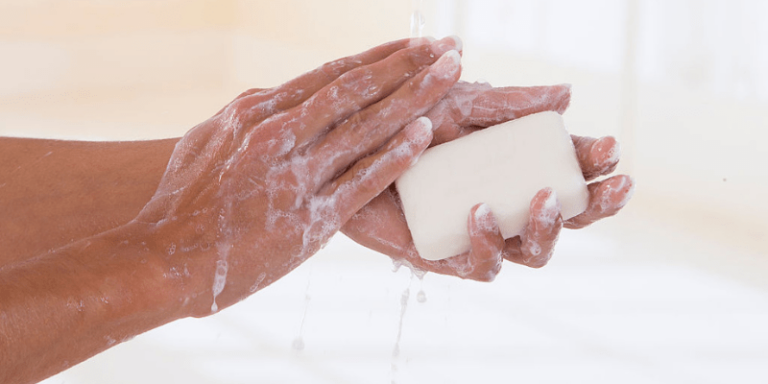Personal Hygiene: A Look Back
Hygiene is crucial to avoiding Coronavirus and other illnesses – but people haven’t always understood it.
By: Kelli Ballard | March 27, 2020 | 388 Words

(Photo by: BSIP/Universal Images Group via Getty Images)
The Coronavirus has had one positive impact: It has made everyone more aware of the importance of hygiene in preventing diseases. Throughout history there have been different notions on personal cleanliness. Centuries ago, people used to think that taking baths would make them sick. One of the reasons perfume and cologne were invented was to help cover the smell of body odor. So, how far have we come regarding sanitation throughout the centuries?
In ancient Greece (1200 – 200 BC), the people did enjoy bathing and used blocks of clay, sand, pumice, and ashes to clean the body. Then they spread oil on their skin and used a strigil (metal instrument) to scrap off excess oils and dirt. Around 600 BC, the Greeks started using chamber pots and had public baths set up near places where they exercised.
In Medieval Britain (AD 400), finding ways to clean the teeth became popular. People rinsed their mouths out with water or made a mixture of vinegar and mint to clean the surfaces. Bay leaves soaked in orange flower tea was another alternative. And, when all else failed, a cloth could be rubbed against the teeth to clean them, too.
During the 1400s, the Chinese invented toilet paper.
The importance of hand washing hit home in 1847 after Ignaz Semmelwis, a physician, discovered that medical students helping women during labor were doing so after assisting in autopsies. Women routinely perished from what was called “childbed fever” at the time. The physician made a strict policy of hand washing and the deaths dropped by 20-fold within just three months.
One hundred years ago, in 1920, Lysol was used as birth control. Although it’s a poison and causes burns, women still applied it to their skin to prevent conception for about 30 years.
Today we have learned a lot from our ancestors’ trial and error. We know the importance of washing hands with soap and sanitizer and that we should continue to wash them for 20 seconds to make sure all germs are removed. Cleanliness is one of the best defenses against spreading or contracting diseases. Social distancing isn’t a new concept, as it was done during the 1918 Spanish Flu pandemic, but modern society has improved on this method as well. As we continue to grow and learn, our knowledge and skills regarding health and hygiene evolve as well.
















